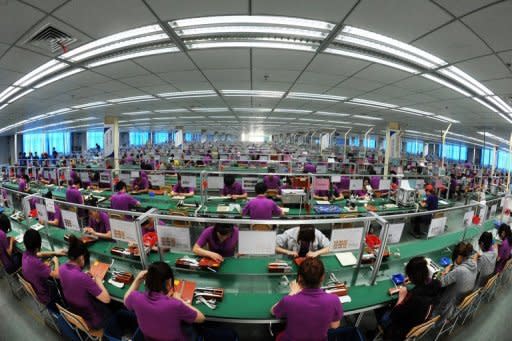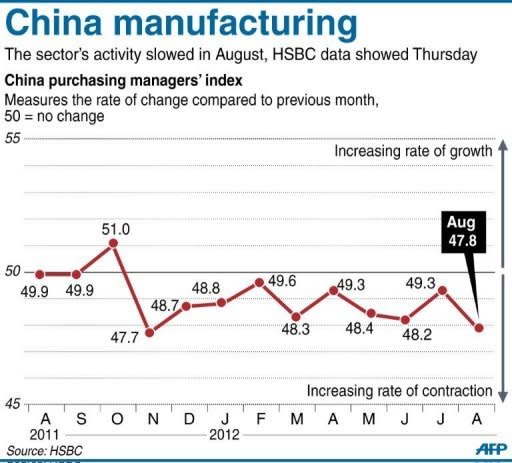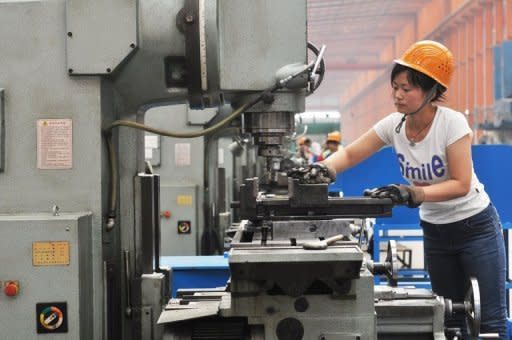China manufacturing hits nine-month low: HSBC
China's manufacturing activity fell to a nine-month low in August as firms struggled with global woes, providing further impetus for Beijing to beef up economic stimulus efforts, HSBC said Thursday. Preliminary figures from the British banking giant's closely watched purchasing managers' index (PMI), which gauges nationwide manufacturing activity, hit 47.8 this month, the lowest since November, HSBC said in a statement. A PMI reading above 50 indicates expansion, while a reading below 50 points to contraction. The preliminary result, down from a final reading of 49.3 in July, showed that Chinese manufacturers are still wrestling with declining overseas demand amid the slowing global economy, said Qu Hongbin, a Hong Kong-based economist with HSBC. "Falling orders dragged down the August flash PMI to a nine-month low, suggesting Chinese producers are still struggling with strong global headwinds," he said in the statement. New export business declined at its sharpest rate since March 2009, HSBC said, without giving a figure. "To achieve the stated policy goal of stabilizing growth and the jobs market, Beijing must step up policy easing to lift infrastructure investment in the coming months," Qu said. HSBC is scheduled to release the final PMI for this month on September 3. Zhang Zhiwei, an economist with Nomura International in Hong Kong, said that the lacklustre PMI reading suggested economic momentum likely remained weak in August and agreed that policy makers would probably be forced to move again. "Weak PMIs will likely put more pressure on the People's Bank of China to loosen monetary policy by cutting the reserve requirement ratio," he said in a research note, referring to a step aimed at encouraging lending by commercial banks. The People's Bank of China, the central bank, "would also support local governments in their initiatives to promote growth through investment projects," he added. China's economy grew 7.6 percent in the second quarter of this year, its slowest pace in more than three years. Key economic data released earlier this month for July -- including trade, industrial output and retail sales figures -- pointed to continued weakness in the world's number two economy and raised hopes for further monetary easing. Still, Chinese Premier Wen Jiabao has expressed confidence that the economy would stay on track and be able to meet targets this year, including annual growth of at least 7.5 percent. Authorities have cut interest rates and lowered reserve requirements for banks in a bid to spur lending to prop up the economy. The country has also moved to encourage more government investment, though it has stopped short of the massive stimulus package launched in the wake of the global financial crisis in 2008. This week, China's central bank injected a net 278 billion yuan ($43.8 billion) into the money market through its open-market operations, Dow Jones Newswires reported Thursday. That marked the biggest weekly liquidity injection in seven months and shows the bank is intensifying efforts to ease liquidity conditions and boost the economy.




